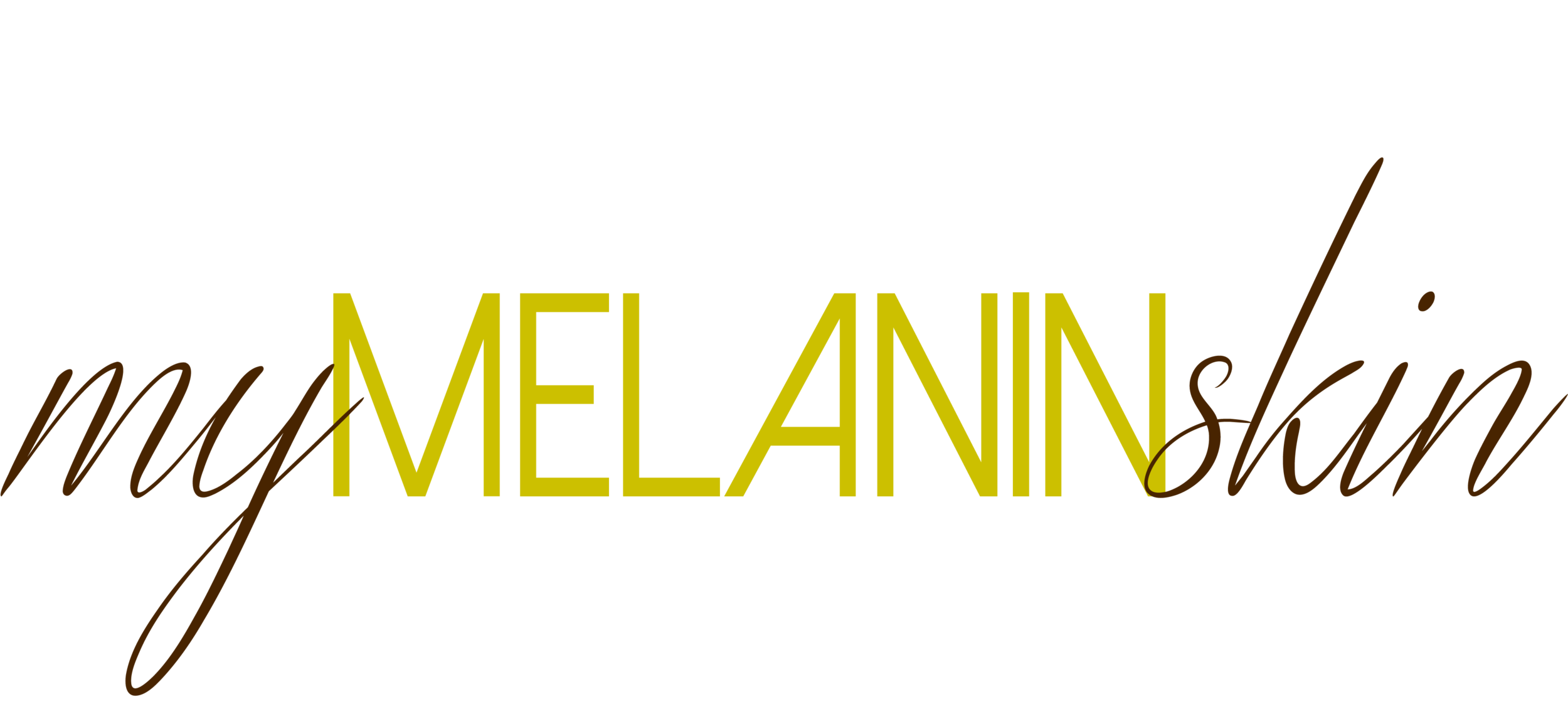Top 3 Ethnic Skin Care Concerns
My love for skin and skin care grew from a slight obsession with ingrown hairs and blackheads. Yeah, I'll admit that I enjoy removing ingrown hairs and seeing built up debris squiggle out of a pore! I know some of you are following Dr. Pimple Popper! She has over a million followers on Instagram, therefore, I know I'm not alone!
Well yeah, this weird pastime lead me to discovering that this condition is very common with ethnic skin. In fact, the Mayo Clinic states that there are more than 3 million cases every year.
So first up, are those pesky ingrown hairs...
An ingrown hair is caused by the hair burying itself underneath the skin. This is a common experience for ethnic skin due to the natural curl pattern of the hair. The condition is normally stimulated by shaving, waxing or any other type of hair removal service.
As the hair grows back and dead skin builds up, the curly/wavy/kinky strand can become trapped underneath the skin. The hair continues to grow, resulting in a bump or inflammation around the area.
Gentle exfoliation with a scrub 3-4 times a week is recommended to remove dead skin and minimize the appearance of ingrown hairs. Use of light serums with alpha and/or beta hydroxy acids are also recommended for additional exfoliation.
Hyperpigmentation, the darkening of the skin; typically results from trauma, disease, hormones, excessive and harsh exfoliation or even sun damage. It can also be a result of chemical peels and/or laser treatments. Use caution when receiving these treatments. Ensure your esthetician is trained and familiar with ethnic skin prior to treatments. Ethnic skin should be treated with care as it is easy to hyperpigment.
Treating hyperpigmentation is not an overnight process and is based on its severity. Gentle exfoliation (3-4 times per week) combined with a cream or serum for hyperpigmentation. These products can contain a variety of active ingredients. Daisy extract and licorice root are examples of plant based lighteners. Spa services can include microdermabrasion, chemical peels or LED treatment.
Eczema can be a frustrating skin condition. Eczema is an inflammation of the skin closely related to dermatitis. Symptoms can include itchy rashes and lesions that may be painful. These can vary from person to person.
Severe cases of eczema will require consultation with a dermatologist. However, symptoms may be minimized by altering your skin care regime. Careful monitoring of triggers is helpful to understand and pinpoint the cause.
Check the labels on your products for soothing ingredients, such as chamomile, aloe vera and oatmeal. Use caution with heavily fragranced products. These may cause further irritation to broken skin. Heavier creams and lotions assist in keeping the skin moisturized and hydrated.
Have you experienced any of these skin concerns? If so, what treatments and remedies helped you?



